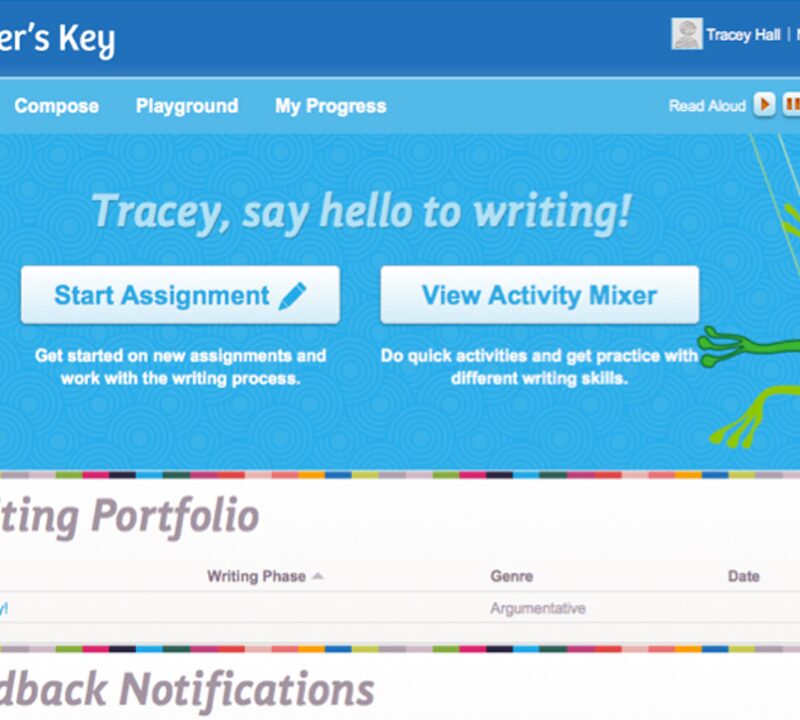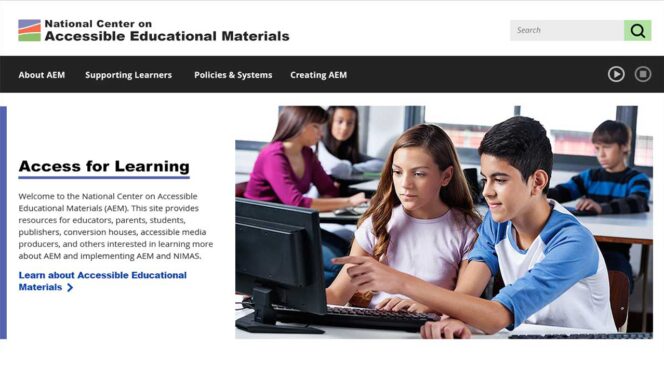Project Name
Creating Compositions Using A Technology-Based Writing Tool: Supporting Students with Universal Design for Learning
Project Description
Teaching middle-school learners to become effective informational and argumentative writers is essential to helping those students develop career and college readiness in later grades.
Yet many English Language Arts educators do not have access to the tools to monitor student performance, progress and data analysis for instructional interventions—all critical components of teaching. Nor do they have the time to provide the kind of individualized, highly supported instruction that learners need to become effective writers.
To respond to this challenge, researchers from CAST and Arizona State University developed and tested Writer’s Key, a web-based tool that guides and supports middle-school students in writing argumentative (persuasive) and informational (expository) compositions.
Four research-recommended components of an effective writing process–Plan, Organize, Draft, Revise, and Publish–gave structure to the tool.
The research team based the design of Writer’s Key on the framework of Universal Design for Learning. In addition to scaffolding users in the writing process, Writer’s Key also provides supports for users such as multiple models, skill development activities, interactive workspaces, guided questions, and a breakdown of writing by process components in a flexible work space. Additionally, built-in peer to peer and teacher to student feedback support the writing process.
In addition, Writer’s Key also contains an embedded measurement tool to support teachers and students in monitoring progress in writing. This formative evaluation component contains both automatic and holistic measures for scoring essays. Teachers and students see graphic displays of performance over time to support ongoing improvement and establish writing goals.
Findings
In this project, CAST and our ASU partners demonstrated the promise of Writer’s Key. The project produced several findings showing that universally designed and highly supportive online writing tools with embedded progress-monitoring features can benefit young writers and their teachers.
This project has amassed an incredible amount of data; our research team has developed a detailed and growing list of additional analyses to conduct. We will continue these analyses with plans to use the information to (a) continue improving Writer’s Key, and (b) submit several journal manuscripts for publication about the process, outcomes and aspects of the Writer’s Key tool we believe are at the core of the positive outcomes derived in this project. As all good studies should, Writer’s Key generated a number of new research questions. We look forward to continued research in this area.
Publication
E., Robinson, K., Ganley, P., Elizade, E., & Graham, S. (2015). Informing understanding of young students’ writing challenges and opportunities: Insights from the development of a digital writing tool that supports students with learning disabilities. Learning Disability Quarterly. Online publication, September 2015. DOI: 10.1177/0731948715604571.
Timeline
2011 – 2014
Funder
US Department of Education, Institute for Education Science
Partner
Project Leadership
Tracey Hall, PhD (CAST)
Stephen Graham, PhD (ASU)
Contact
For more information about this project, please contact Tracey Hall.

